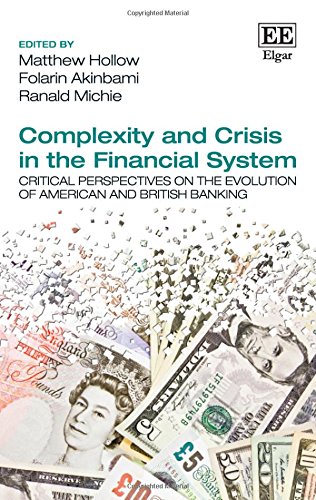

Most ebook files are in PDF format, so you can easily read them using various software such as Foxit Reader or directly on the Google Chrome browser.
Some ebook files are released by publishers in other formats such as .awz, .mobi, .epub, .fb2, etc. You may need to install specific software to read these formats on mobile/PC, such as Calibre.
Please read the tutorial at this link: https://ebookbell.com/faq
We offer FREE conversion to the popular formats you request; however, this may take some time. Therefore, right after payment, please email us, and we will try to provide the service as quickly as possible.
For some exceptional file formats or broken links (if any), please refrain from opening any disputes. Instead, email us first, and we will try to assist within a maximum of 6 hours.
EbookBell Team

4.4
102 reviews'This important collection of essays uses the historical experiences of various countries to explore how the increasing complexity of financial systems has magnified the risk of crises. I'm extremely confident that this book will be consulted by scholars in disciplines ranging from law to finance to history. I also sincerely hope that this book will also be read by the public servants responsible for macroprudential regulation and the prevention of future financial crises.'
- Andrew Smith, University of Liverpool Management School, UK
What are the long-term causes and consequences of the global financial crisis of 2007-2008? This book offers a fresh perspective on these issues by bringing together a range of academics from law, history, economics and business to look in more depth at the changing relationships between crises and complexity in the US and UK financial markets.
The contributors are motivated by three main questions:
- Is the present financial system more complex than in the past and, if so, why?
- To what extent, and in what ways, does the worldwide financial crisis of 2007-2008 differ from past financial crises?
- How can governments, regulators and businesses better manage and deal with increased levels of complexity both in the present and in the future?
Students and scholars of finance, economics, history, financial law, banking and international business will find this book to be of interest. It will also be of use to regulators and policymakers involved in the US and UK banking sectors.
Contributors: F. Akinbami, T. T. Arvind, P.H. Bent, M. Billings, I. Bond, R.F. Bruner, A. Campbell, S.D. Carr, M. Casson, J.M. Dahlgreen, J. Foreman-Peck, J. Gray, L. Hannah, M. Hollow, A. Mehedi, D.T. Mitchell, R. Michie, J. Singleton, J. Taylor, R. Tomasic, S. Wilson